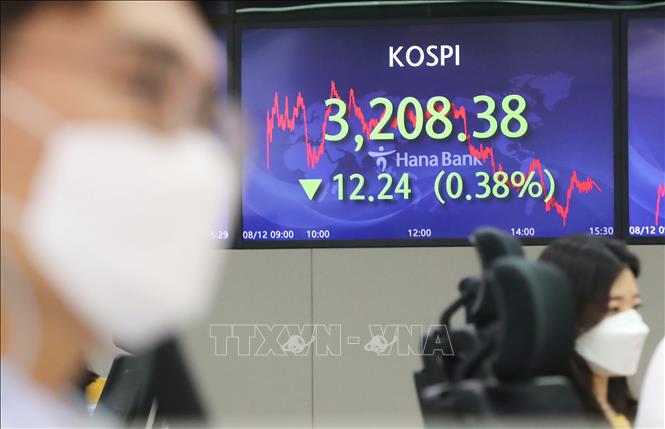
At the end of this session, in Tokyo, the Nikkei 225 index dropped 293.48 points (1.08%), down 26,799.71 points, due to concerns about the Russia-Ukraine conflict and an increase in the number of COVID-19 cases. strong in China.
Meanwhile, in Seoul (Korea) market, the Kospi index also dropped slightly in the first session of the week, when investors were cautious about concerns about inflation and the possibility of the US Federal Reserve (US Federal Reserve). Fed) will raise interest rates earlier and stronger than expected. The Kospi index fell 2.85 points (0.11%), to 2,693.21 points. Trading volume reached about 1.1 billion shares, equivalent to 8.9 trillion won ($7.2 billion).
Not out of the above trend, in the Chinese market, while the Hong Kong stock market was closed for a holiday, the Shanghai stock market also dropped points, due to concerns about “significantly large challenges”. ” for the Chinese economy, especially the challenges stemming from the resurgence of the COVID-19 pandemic. Closing this session, the Shanghai Composite Index dropped 15.72 points (0.49%) to 3,195.52 points.
The National Bureau of Statistics of China (NBS) on April 18 announced data showing that the Gross Domestic Product (GDP) in the first quarter of 2022 increased by 4.8% compared to the same period in 2021, at the same time warning warned of “major challenges” ahead in the context of the complicated COVID-19 epidemic threatening the country’s ambitious growth target.
The world’s second-largest economy has lost momentum since the second half of 2021 due to a slumping property market and government regulatory measures. However, China’s “persistence” with its zero COVID approach has impacted the supply chain and forced millions of people to stay at home, especially in the economic and financial hubs Shanghai and Shenzhen. Industrial output growth slowed to 5% in March 2022, after increasing by 6.7% in January and February, amid the complicated developments of the COVID-19 epidemic that forced the authorities to impose a blockade. Meanwhile, retail sales fell 3.5% and the unemployment rate in rural areas increased to 5.8% in the same month.
In Vietnam, closing the session on April 18, the VN-Index dropped 25.96 points (1.78%) to 1,432.60 points. The HNX-Index fell 13.59 points (3.26%), to 403.12 points.
Source: baotintuc.vn
Source: Vietnam Insider
